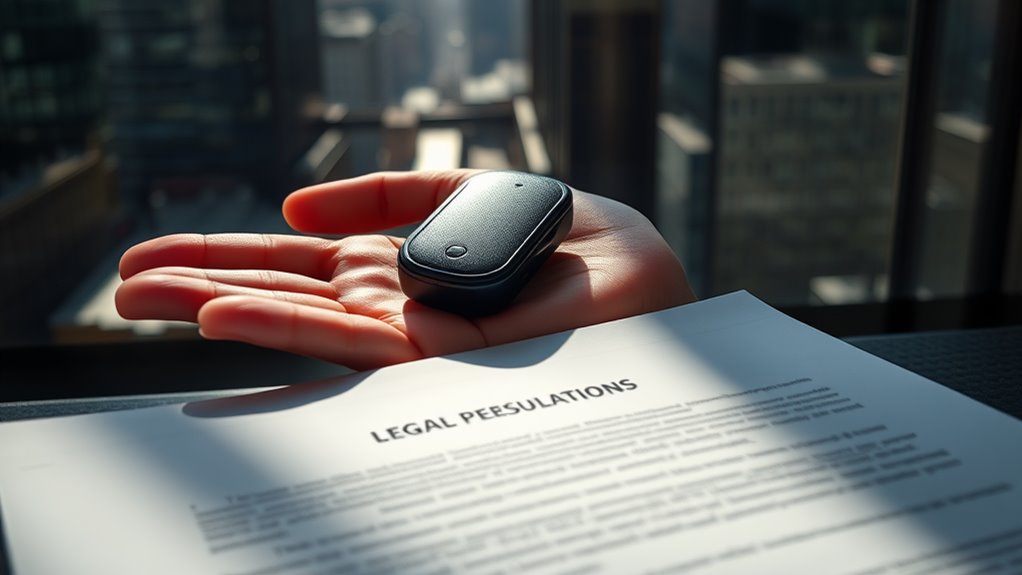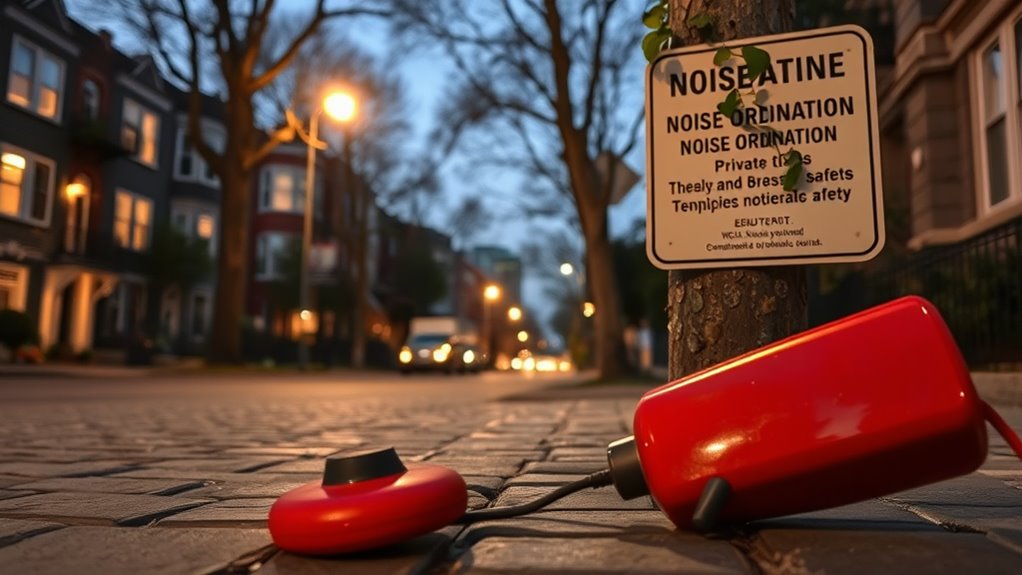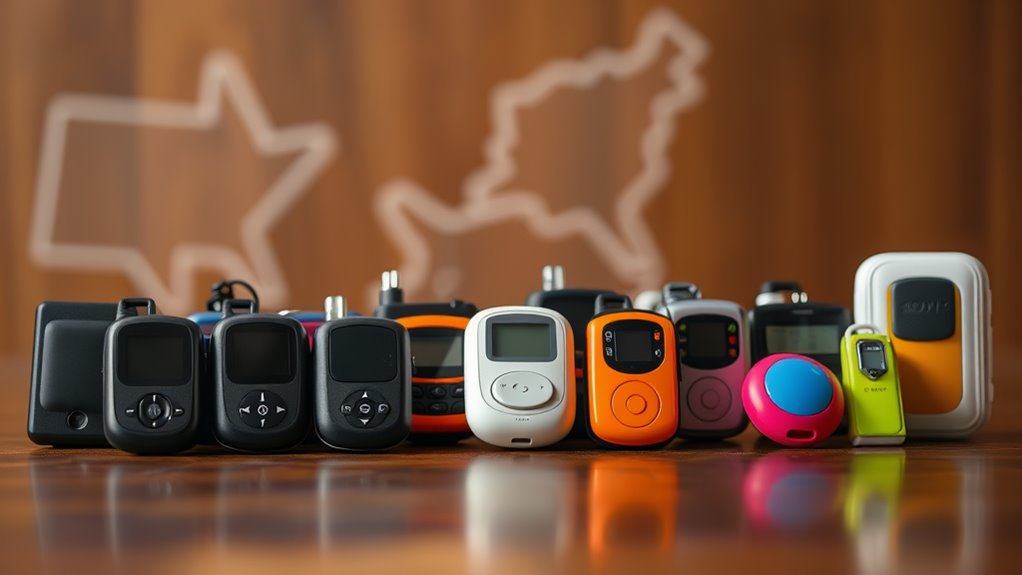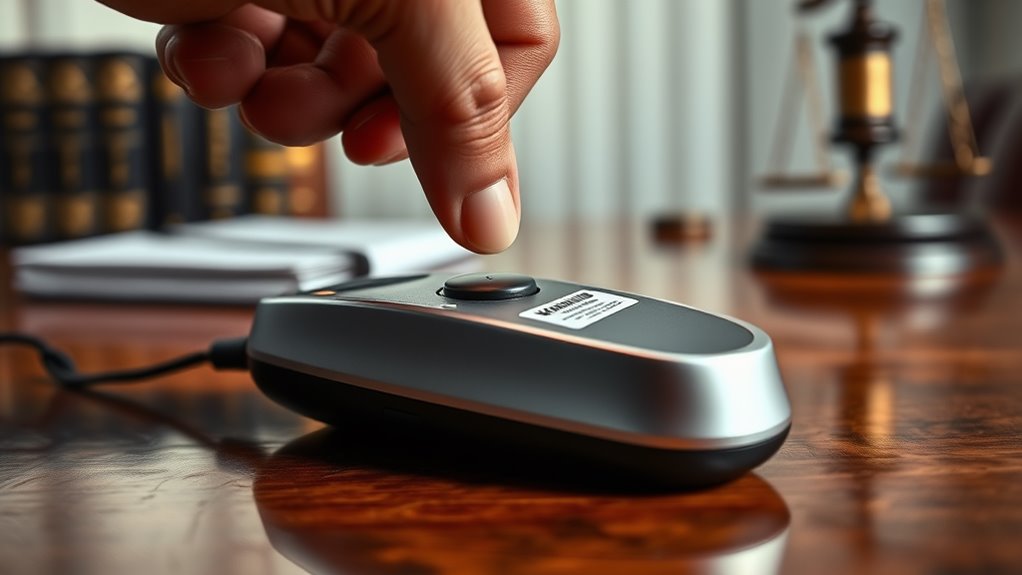Using personal alarms can really help keep you safe, but there are some legal rules you should know. Many places have noise ordinances that limit how loud alarms can be, so setting one off might lead to complaints or fines. Also, self-defense laws vary, and while alarms can call for help, misusing them could get you into trouble. It's smart to check your local rules, choose reputable devices, and teach others how to use them properly. Understanding these details can prevent issues down the line, and there's more to discover about the best practices for using these helpful tools!
Understanding Personal Alarms

Personal alarms are compact devices designed to emit loud sounds when activated, typically to deter attackers or signal for help. They're super handy for personal safety and can be a lifesaver in emergencies. When you carry one, you're not just prepared; you're empowered! Imagine walking alone at night and feeling uneasy. With a quick press, your alarm blares, catching attention and sending any would-be attacker running for the hills. Plus, they're easy to use and fit right in your pocket or bag. In a world where being prepared can make all the difference, personal alarms are a smart choice. Personal Panic Alarm 130dB offers effective deterrence and visibility with its loud alarm and bright strobe light. The 2n1 Personal Burglar Alarm offers dual functionality, serving as both a personal alarm and a burglar alarm, ideal for various security scenarios.
Types of Personal Alarms
Safety comes in various shapes and sizes when it comes to personal alarms. You've got different types of alarms designed to fit your needs. Here's a quick look at some popular options:
| Type of Alarm | Alarm Effectiveness |
|---|---|
| Keychain Alarms | Loud and portable, easy to carry |
| Personal Alarm Apps | Works on your phone, handy for tech-savvy users |
| Door Alarms | Alerts you when someone enters, perfect for home safety |
| Wristband Alarms | Wearable and discreet, good for outdoor activities |
Each type serves a unique purpose, ensuring you can choose what works best for you. Remember, knowing your options helps you select the right personal alarm for maximum alarm effectiveness. Stay safe out there! The 3in1 130db Personal Alarm With Light combines multiple functions, making it an efficient choice for those seeking both personal and property security. The Keychain Alarm with Light, for example, not only provides a 130db alarm but also features a flashlight, enhancing its utility.
Local Noise Ordinances

Noise regulations play an essential role in maintaining peace and order within communities.
When you think about personal alarms, it's vital to take into account local noise ordinances. These laws enforce noise control to protect everyone's right to a peaceful environment. If you set off your personal alarm, it might be too loud for your neighborhood, leading to complaints or even fines.
Knowing your local noise rules helps you use your alarm effectively while promoting community safety. Remember, the goal is to alert others without causing unnecessary disturbances.
Self-Defense Laws
Understanding self-defense laws is essential when considering the use of personal alarms. You need to know your self-defense rights and how the legal definitions apply in your area. Personal alarms can be a great tool, but they must be used within the law. Here's a quick look at some important points:
| Aspect | Explanation | Considerations |
|---|---|---|
| Self-Defense Rights | Your right to protect yourself | Varies by location and situation |
| Legal Definitions | Terms like "imminent threat" | Important to understand for legal use |
| Alarm Usage | Can alert others to danger | Must not cause unnecessary panic |
| Consequences | Potential legal issues if misused | Know the laws to avoid trouble |
Always be informed to stay safe!
Restrictions by State

When it comes to personal alarms, the restrictions can vary considerably from one state to another. Some states have specific regulations about the type of alarms you can use, while others don't impose any rules at all.
For instance, in some places, using alarms that emit loud sounds is perfectly fine, but in others, there might be restrictions regarding their volume or usage times. It's essential to check your state's regulations to guarantee you're using personal safety devices legally.
You wouldn't want to accidentally break a law while trying to protect yourself! So, before you grab that alarm, do a little research. Staying informed not only keeps you safe but also helps you avoid any legal hiccups down the road.
Usage in Public Spaces
Personal alarms can be a valuable tool for enhancing safety in public spaces, but their usage often comes with specific considerations. They can help alert others in emergencies and improve public safety, but it's important to know where and how to use them effectively.
Here's a quick guide to help you navigate the do's and don'ts:
| Do's | Don'ts | Considerations |
|---|---|---|
| Use in crowded areas | Overuse in calm spaces | Know your surroundings |
| Activate in emergencies | Misuse for pranks | Be aware of response time |
| Carry for personal safety | Ignore local laws | Stay calm during use |
Legal Consequences of Misuse

Misuse of personal alarms can lead to serious legal consequences that you mightn't expect. If you pull that alarm without a real reason, you could face some hefty legal repercussions.
Imagine being fined for causing a false alarm or even getting in trouble with the police! The misuse implications don't stop there; you might find it harder to get a job or volunteer if you've got a record.
It's like ordering a pizza and getting anchovies instead—nobody wants that! So, think twice before using your personal alarm for pranks or false alerts.
Instead, save it for when you really need it, keeping yourself safe while avoiding unnecessary trouble. Remember, alarms are meant for protection, not for playing around!
Best Practices for Compliance
Understanding the potential legal consequences of misuse is important for anyone considering a personal alarm. To stay on the right side of the law, follow these best practices and compliance guidelines:
| Best Practices | Dos | Don'ts |
|---|---|---|
| Know Your Local Laws | Research regulations | Ignore local restrictions |
| Use Proper Devices | Choose reliable alarms | Use fake or toy alarms |
| Notify Authorities | Inform police if necessary | Panic without a plan |
| Train Users | Educate family members | Assume everyone knows how |
| Store Safely | Keep alarms accessible | Hide them in hard-to-reach places |
Frequently Asked Questions
Can Minors Legally Carry Personal Alarms Without Parental Consent?
As a minor, you have certain rights regarding alarm safety, but carrying personal alarms might require parental consent depending on your location. Always check local laws to verify you're compliant while guaranteeing your safety.
Do Personal Alarms Require a Permit to Own or Use?
Personal alarms typically don't require a permit for ownership. However, it's essential to understand the legal definitions in your area, as local laws may impact your ownership rights and usage of these devices.
Are There Restrictions on Personal Alarm Designs or Features?
Yes, there are restrictions on personal alarm designs. You need to guarantee your device meets safety standards and design regulations. Check local laws to avoid any issues, guaranteeing your alarm is both effective and compliant.
Can Personal Alarms Be Used in Private Properties Without Permission?
You can't assume personal alarms are free to use on private property. Always check local alarm usage regulations, as property owners may enforce private property rights that restrict or require permission for alarm usage.
What Should I Do if My Personal Alarm Is Confiscated by Authorities?
If authorities confiscate your personal alarm, understand the confiscation process. Document everything and seek legal recourse. Consult a lawyer to explore your options and guarantee your rights are protected during this situation.
So Here Is What We Learned
To sum up, using personal alarms can be a smart way to stay safe, but you've got to know the rules. Check your local laws and make sure you're following noise ordinances and self-defense regulations. Remember, it's not just about being loud; it's about being smart. Stay informed and use your alarm responsibly, so you can keep yourself safe without any legal trouble. Stay safe out there, and don't forget to read the fine print!




